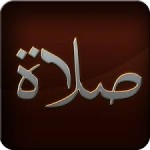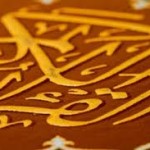Is it permissible for a parent to gift more to one child?
QUESTION:
Father gifts his house to youngest son only, reason he gives is “he loves him more”. Now there is no harmony between the sons.
Hadith Bukhaari (2586) and Muslim (1623), I have given a son of mine a slave that used to belong to me. Muhammad ﷺ said, “have you given a similar gift to all of your children?” He said, “No.” Muhammad ﷺ said, “Then take (your gift) back.”
How does the hadith relate to this house gift situation?
ANSWER:
In the Name of Allah, the Most Gracious, the Most Merciful.
As-salāmu ‘alaykum wa-rahmatullāhi wa-barakātuh.
In principle, it is preferable for a parent to gift their children equally. However, they may choose to give more to one child if there is a valid reason, such as a particular child dedicating more time in serving the parents. [1]
Secondly, the Hadīth you quoted in the question is as follows:
عن النعمان بن بشير، أن أباه، أتى به إلى رسول الله صلى الله عليه وسلم فقال إني نحلت ابني هذا غلاما. فقال ” أكل ولدك نحلت مثله ”. قال لا. قال ” فارجعه ”.
Nu’mān bin Bashīr (may Allah be pleased with him) narrated that his father took him to the Messenger of Allah (peace and blessings be upon him) and said, “I have given this son of mine a slave”. The Prophet (peace and blessings be upon him) asked, “Have you given all your sons the like?” He replied in the negative. The Prophet (peace and blessings be upon him) said, “Return it then.” [2]
The above Hadīth has many variations [3] and the scholars of Hadīth have explained it thus:
- The command of the Prophet (peace and blessings be upon him) was not an enforcement, but a recommendation. [4]
- The father wanted to make the Prophet (peace and blessings be upon him) a witness to the gift he had given to his son. This is because the gift of a parent to their young child is not complete without it being made apparent or witnessed. However, the Prophet (peace and blessings be upon him) advised against gifting in such a manner, and thus, the gift was never in the possession of Nu’man (may Allah be pleased with him). [5]
- The gifting was actually a bequest; and thus, its ownership had never been transferred to Nu’man (may Allah be pleased with him). [6]
- The Qādhī (Islamic Judge) can order the return of a gift. Hence, the Prophet (peace be upon him) ordered that the gift be retracted. [7]
Lastly, it is not permissible to take back a gift once given [8]. This is based on many narrations which prohibit such an action, such as the Hadīth:
الْعَائِدُ فِي هِبَتِهِ كَالْكَلْبِ يَقِيءُ، ثُمَّ يَعُودُ فِي قَيْئِهِ
“One who takes back his gift [which he has already given] is like a dog that swallows its vomit.”
And Allah Ta’ālā Knows Best
Abdullah Teladia
Concurred by:
Hanif Yusuf | Zayd Imran
References
[1]
...فأرجعه) وهذا إشارة إلى العدل بين الأولاد في النحلة وهو التسوية بينهم ولأن في التسوية تأليف القلوب والتفضيل يورث الوحشة بينهم فكانت التسوية أولى ولو نحل بعضا وحرم بعضا جاز من طريق الحكم لأنه تصرف في خالص ملكه لا حق لأحد فيه إلا أنه لا يكون عدلا سواء كان المحروم فقيها تقيا أو جاهلا فاسقا على قول المتقدمين من مشايخنا وأما على قول المتأخرين منهم لا بأس أن يعطي المتأدبين والمتفقهين دون الفسقة الفجرة
[Badā'i' al-Sanā'i': DKi: 6:127]
وفي شرح السنة: في الحديث استحباب التسوية بين الأولاد في النحل، وفي غيرها من أنواع البر حتى في القبلة، ولو فعل خلاف ذلك نفذ. وقد فضل أبو بكر عائشة - رضي الله عنهم - بأحد وعشرين وسقا نحلها إياها دون سائر أولاده، وفضل عمر بن الخطاب - رضي الله عنه - عاصما في عطائه، وفضل عبد الرحمن بن عوف ولد أم كلثوم، قال القاضي - رحمه الله -: وقرر ذلك ولم ينكر عليهم فيكون إجماعا (متفق عليه)
[Mirqāt al-Mafātīh: Dār al-Fikr: 5:2009]
الجواب: احناف کا مفتی بہ مذہب یہ ہے کہ عام حالات میں اولاد کے درمیان تقسیم کے وقت برابری اور مساوات فضل اور بہتر ہے واجب نہیں ہے۔ ہاں اگر بعض کو خواہ مخوا کو نقصان پہونچانا چاہتے ہوں تو پھر برابری لازم ہوگی ۔
[Fatāwā Dārul Uloom Zakariyyā: Zam Zam Publishers: 5:603]
[2]
[Sahīh al-Bukhārī: 2586]
[3]
قالَ: فأرجعه)، أي: قالَ النَّبِي ﷺ أرجع ما نحلته لابنك. اخْتلف فِي هَذا اللَّفْظ، فَفِي بعض الرِّوايات: فاردده، وفِي رِوايَة: فَرده، وفِي رِوايَة: فَرد عطيته، وفِي رِوايَة: اتَّقوا الله واعدلوا بَين أوْلادكُم، وفِي رِوايَة: قاربوا بَين أوْلادكُم، روى: قاربوا بِالباء المُوَحدَة وبالنون
['Umdah al-Qārī: Dār Ihyā al-Turāth: 13:144]
[4]
فَإن قلت: فِي حَدِيث الباب الأمر بِالرُّجُوعِ صَرِيحًا حَيْثُ قالَ: (فارجعه) قلت: لَيْسَ الأمر على الإيجاب، وإنَّما هُوَ من باب الفضل والإحْسان، ألاَ ترى إلى حَدِيث أنس رَواهُ البَزّار فِي (مُسْنده) عَنهُ: (أن رجلا كانَ عِنْد رَسُول الله ﷺ، فجاء ابْن لَهُ فَقبله وأجْلسهُ على فَخذه، وجاءته بنية لَهُ فأجلسها بَين يَدَيْهِ، فَقالَ رَسُول الله ﷺ: (ألاَ سويت بَينهما؟) انْتهى. ولَيْسَ هَذا من باب الوُجُوب، وإنَّما هُوَ من باب الإنْصاف والإحْسان
['Umdah al-Qārī: Dār Ihyā al-Turāth: 14:144]
[5]
ولا تحوز للمنحول حتى يقبضها إلا الولد الصغير فإن قبض والده له قبض، فإذا أعلنها وأشهد بها فهي جائزة لولده، ولا سبيل للوالد إلى الرجعة فيها، ولا إلى اغتصابها بعد أن أشهد عليها
[Muwatta' Imām Muhammad: Qadīmī Kutub Khana: 3:76-82]
[6]
ومعنى قوله: - عليه الصلاة والسلام - اردد أي: أمسك مالك، وارجع إلى رحلك، وقيل: كان هذا منه بطريق الوصية بعد موته؛ ألا ترى أنه اعتبر التسوية بين الأولاد، وإنما تجب التسوية في الوصية بعد الموت فأما في الهبة في الصحة، فلا؛ ألا ترى أن أبا بكر - رضي الله تعالى عنه - خص عائشة بالهبة لها في صحته - كما روينا - والدليل عليه: أن النعمان بن بشير - رضي الله عنه - قال فرجع أبي في وصيته
[al-Mabsūt li al-Sarakhsī: 12:56]
[7]
وإن حق الرجوع من الهبة إنما يثبت عند الحنفية إما بقضاء القاضي، أو برضا الموهوب له، ولا يثبت بغير ذلك، كما هو مصرح في المتون، وراجع الهداية مع الفتح (۷: ۱۳۵)، ثم إن ذلك مكروه عند الحنفية أيضا، كما صرح به صاحب الهداية ويتلخص من كل ذلك أنه يكره للواهب الرجوع ديانة ، ويجوز قضاء
[Fath al-Mulhim: Dār Ihyā al-Turāth: 8:54]
وأما الحنفية فتأولوا فيه بأن الهبة كانت موقوفة على إجازة النبي، كما يدل عليه رواية الطحاوي: «فإن أذنت أن أجيزه له أجزته» ورواية النسائي (۲: ۱۳۵) «فإن رأيت أن تنفذه أنفذته» فلا يدل الحديث على جواز رجوع الوالد في هبته لولده ، وقد مرت دلائل حرمة الرجوع من هبة ذي رحم محرم في الباب السابق. ولو ثبت أن الهبة كانت قد تمت، فإن الحديث دليل على أن للإمام أن يسترد للواهب ما وهبه بقصد إضرار الورثة، قال المهلب: وفيه أن للإمام أن يرد الهبة والوصية ممن يعرف منه هروبا عن بعض الورثة، ذكره الحافظ في الفتح
[Fath al-Mulhim: Dār Ihyā al-Turāth: 8:65]
[8]
ولم يبن لنا في شيء من هذه الآثار أن للوالد إذا وهب لولده هبة تمت منه له، وإن كان قد خالف فيها ما أمر به في أولاده، أن له أن يرجع فيها، ولا أن يبطلها، والله نسأله التوفيق
[Sharh Mushkil al-Āthār: Mu'assasah al-Risālāh: 13:77]
وعند أصْحابنا الحَنَفِيَّة: لا رُجُوع فِيما يَهبهُ لكل ذِي رحم محرم بِالنّسَبِ، كالابن والأخ والأُخْت والعم والعمة. وكل من لَو كانَ امْرَأة لا يحل لَهُ أن يَتَزَوَّجها
['Umdah al-Qārī: Dār Ihyā al-Turāth al-'Arabī: 13:143]
اگر والد نے زمین بیٹے کو ہبہ کر کے قبضہ بھی دیدیا تھا تو اسکا رجوع جائز نہیں
[Ahsan al-Fatāwā: H.M. Saeed: 7:254]
[9]
[Sahīh al-Bukhārī: 2589]
DISCLAIMER:
The Ask Our Imam site hopes to respond to queries relating to Islamic law. It is not an Islamic Law Shari`ah Court. The questions and answers found on this website are for educational purposes. However, many of the rulings rendered here are distinct to the specific scenario and thus should be read in conjunction with the question and not taken as a basis to establish a verdict in another situation or environment. This site bears no responsibility in these responses being used out of their intended context, nor to any party who may or may not follow the responses given and is being hereby exempted from loss or damage howsoever caused. None of the responses rendered may be used as evidence in any Court of Law without prior written consent of Our Imam. Any reference to another website or link provided in our responses or article should not be taken as an endorsement of all the content on that website; in fact, it is restricted to the particular material being cited.
Posted in Buyoo' (Money-related issues)Aadaab (Ettiquettes & Manners)Daily MattersSocial Conduct on 4th Oct 2022 by Our Imam | 420 Views





